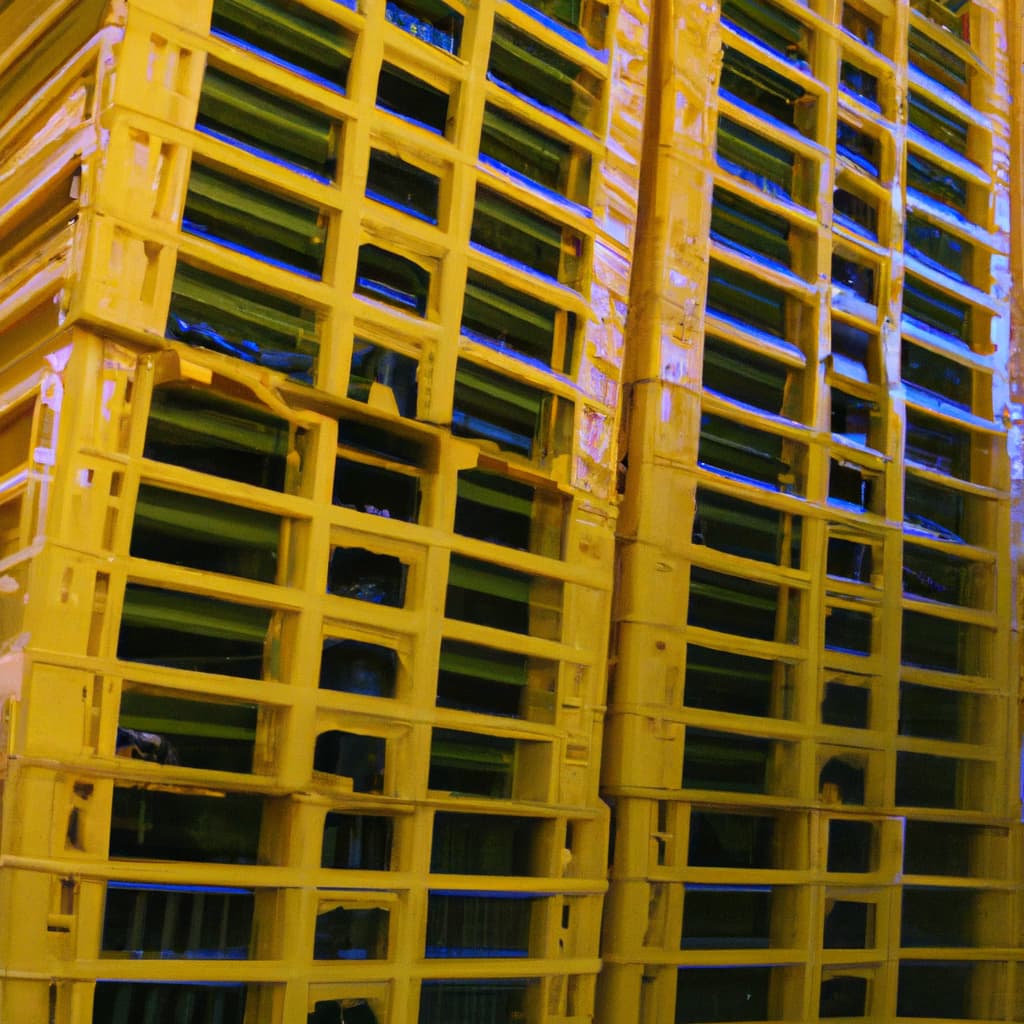Warehouse racking systems play a crucial role in optimizing storage space and improving operational efficiency in warehouses. One important aspect of setting up an effective racking system is choosing the right pallets. Among the options available, two popular choices are reusable plastic pallets and steel selective pallets. In this article, we will explore the advantages of each type and help you make an informed decision for your warehouse racking needs.
Reusable Plastic Pallets
Durability and Longevity
Reusable plastic pallets are known for their durability and longevity. They are designed to withstand the rigors of warehouse environments, including frequent handling, stacking, and transportation. These pallets are made from high-quality plastics, such as HDPE or polypropylene, which are resistant to impact, moisture, and chemicals. As a result, they have a longer lifespan compared to other pallet options.
Lightweight and Easy Handling
One of the key advantages of reusable plastic pallets is their lightweight nature. They are significantly lighter than steel selective pallets, making them easier to handle and maneuver within the warehouse. The lightweight design not only improves operational efficiency but also reduces the risk of injuries for workers during pallet handling.
Hygiene and Cleanliness
In industries that require strict hygiene standards, such as food and pharmaceuticals, reusable plastic pallets offer a clear advantage. They are non-porous and resistant to moisture, which means they are less likely to harbor bacteria or contaminants. Plastic pallets can be easily cleaned, sanitized, and dried, ensuring a hygienic environment for storing sensitive products.
Sustainability
With increasing concerns about the environment, sustainability has become a critical factor in decision-making. Reusable plastic pallets are more eco-friendly than their steel counterparts. They are made from recyclable materials and can be recycled at the end of their lifespan. Furthermore, plastic pallets can be repaired and reused, reducing waste generation and promoting a circular economy.
Steel Selective Pallets
Strength and Load Capacity
Steel selective pallets are known for their exceptional strength and load capacity. They can withstand heavy loads and provide excellent support for storing large and bulky items. The robust construction of steel pallets ensures their longevity and makes them suitable for demanding warehouse environments.
Fire Resistance
In certain industries where fire safety is a critical concern, steel selective pallets offer an advantage. Steel is inherently fire-resistant and does not contribute to the spread of flames. This characteristic provides added protection for valuable goods and reduces the risk of extensive damage in the event of a fire.
Long-Term Investment
While steel selective pallets may have a higher upfront cost compared to plastic pallets, they offer a long-term investment. Steel pallets have a longer lifespan and require minimal maintenance. They are resistant to wear and tear, making them a cost-effective choice for warehouses that require durable pallets for extended periods.
Factors to Consider in the Decision
When choosing between reusable plastic pallets and steel selective pallets for your warehouse racking system, it’s essential to consider several factors that can impact your decision. It is important to consult with experts or suppliers who specialize in warehouse racking systems. One such company that offers a wide range of selective pallet racking solutions is RackSteel. Below are the facts to consider when organizing warehouse solutions.
A. Load requirements: Assess the weight and size of your inventory to determine which type of pallet can adequately support your load requirements. Consider factors such as maximum load capacity, weight distribution, and compatibility with handling equipment.
B. Warehouse environment: Evaluate the conditions within your warehouse, including temperature, humidity levels, and exposure to chemicals or moisture. Some pallet materials may be more suitable for specific environmental factors. For example, if your warehouse deals with perishable goods or operates in a wet environment, plastic pallets’ moisture resistance may be advantageous.
C. Industry regulations: Different industries have specific regulations and standards regarding warehouse operations, including pallet selection. Ensure that your chosen pallet type complies with these regulations to avoid any potential compliance issues or safety hazards.
D. Cost: While cost is an important consideration, it shouldn’t be the sole determining factor. Evaluate the total cost of ownership, which includes the initial purchase price, maintenance requirements, and expected lifespan of the pallets. Opting for a slightly higher upfront cost may be a more cost-effective decision if it offers better durability and longevity.
By carefully considering these factors, you can make an informed decision that aligns with your specific warehouse requirements and ensures optimal performance of your racking system.
Conclusion
In conclusion, both reusable plastic pallets and steel selective pallets have their advantages in warehouse racking systems. Reusable plastic pallets offer durability, lightweight handling, hygiene, and sustainability benefits. On the other hand, steel selective pallets provide strength, fire resistance, and long-term investment advantages.
To determine which option is better for your warehouse, consider factors such as load requirements, warehouse environment, industry regulations, and cost. By carefully evaluating these factors and consulting with experts or suppliers, you can make an informed decision that aligns with your specific needs.
